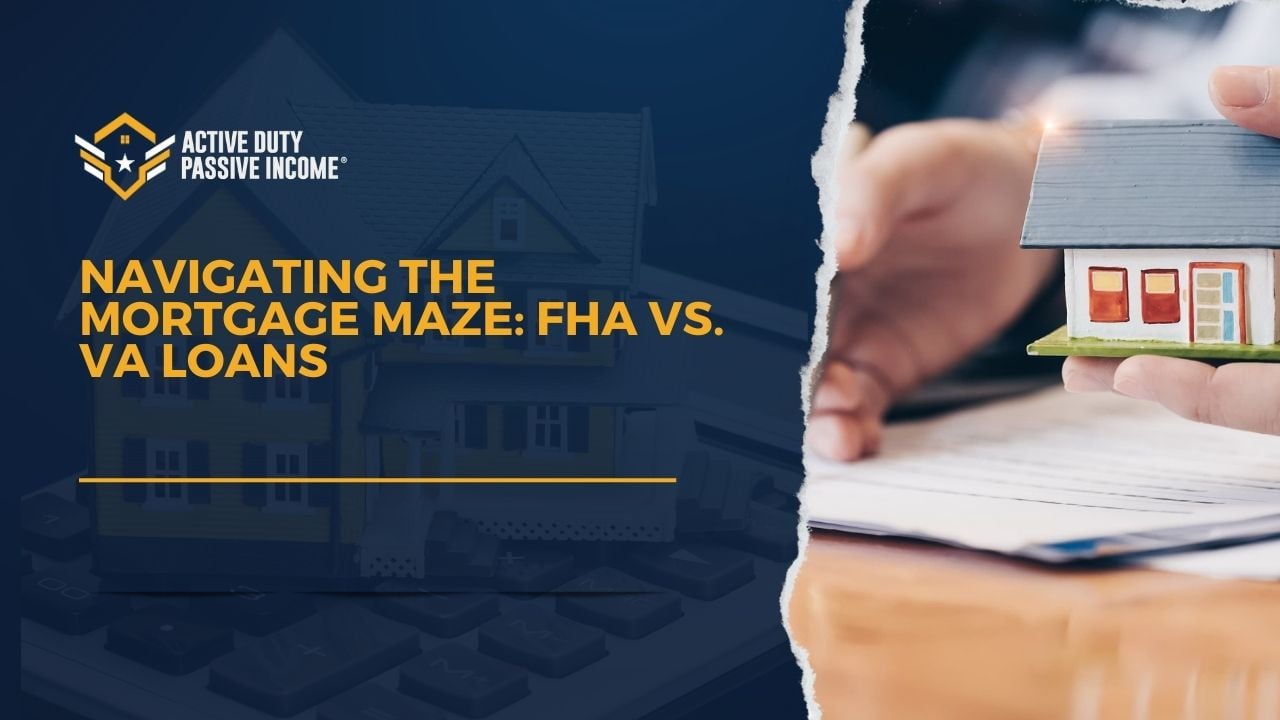In the complex world of mortgages, first-time homebuyers and veterans alike often find themselves at a crossroads, wondering which loan option is the right fit for their needs. FHA (Federal Housing Administration) and VA (Department of Veterans Affairs) loans are two popular choices, each with its own set of benefits and considerations. In this comprehensive guide, we’ll break down the key differences between FHA and VA loans, helping you make an informed decision on the path to homeownership.
Understanding FHA Loans:
FHA Loan Basics: FHA loans are designed to make homeownership more accessible, especially for first-time buyers. They are insured by the Federal Housing Administration, allowing borrowers to secure a mortgage with a lower down payment and more lenient credit requirements compared to conventional loans.
Down Payment Advantage: One of the standout features of FHA loans is the lower down payment requirement. While conventional mortgages often demand a 20% down payment, FHA loans typically require as little as 3.5%, making homeownership more achievable for those with limited savings.
Credit Score Considerations: FHA loans are known for being more forgiving when it comes to credit scores. Borrowers with credit scores as low as 580 may still qualify for an FHA loan, albeit with a slightly higher down payment. This flexibility can be a game-changer for individuals working to improve their credit.
Mortgage Insurance: It’s essential to note that FHA loans come with mortgage insurance premiums (MIP). This insurance protects the lender in case the borrower defaults on the loan. While the upfront MIP can be rolled into the loan amount, borrowers should factor in ongoing monthly MIP payments.
Understanding VA Loans:
VA Loan Basics: VA loans are exclusive to eligible veterans, active-duty service members, and surviving spouses. These loans are guaranteed by the Department of Veterans Affairs, offering unique benefits tailored to those who have served in the military.
Zero Down Payment Advantage: The most notable perk of VA loans is the potential for a zero down payment. This feature significantly reduces the financial barrier to entry for military personnel and veterans, making homeownership a reality without the need for a substantial upfront payment.
No Private Mortgage Insurance (PMI): Unlike FHA loans, VA loans don’t require private mortgage insurance. This can result in substantial savings over the life of the loan, further enhancing the affordability of homeownership for veterans.
Competitive Interest Rates: VA loans often come with competitive interest rates, another advantage for military borrowers. The Department of Veterans Affairs guarantees a portion of the loan, reducing the risk for lenders and enabling them to offer favorable terms.
Comparing FHA and VA Loans:
Down Payment and Affordability: While both FHA and VA loans aim to increase accessibility, the down payment requirement sets them apart. FHA loans are known for their low down payment, but VA loans take it a step further with the potential for zero down payment. For military borrowers, this can be a decisive factor in making homeownership a reality.
Credit Score Impact: FHA loans are generally more lenient when it comes to credit scores, making them a viable option for those working to rebuild their credit. On the other hand, VA loans may have more flexible requirements and competitive interest rates, providing a compelling option for veterans with varying credit profiles.
Mortgage Insurance Considerations: FHA loans come with both upfront and ongoing mortgage insurance premiums, impacting the overall cost of the loan. In contrast, VA loans skip private mortgage insurance altogether, offering potential long-term savings.
Eligibility Criteria: FHA loans are available to a broader audience, including first-time homebuyers and individuals who may not have military service experience. In contrast, VA loans are exclusive to eligible veterans, active-duty service members, and surviving spouses. The eligibility criteria play a crucial role in determining which loan is the right fit.
Conclusion:
Choosing between FHA and VA loans requires a careful consideration of your unique circumstances and financial goals. While FHA loans provide a pathway for first-time buyers with a low down payment and more lenient credit requirements, VA loans stand out for their zero down payment option and exclusive benefits for veterans.
Ultimately, the decision hinges on your eligibility, financial situation, and long-term homeownership goals. Whether you’re a civilian looking for an accessible entry into homeownership or a veteran seeking the unique advantages of a VA loan, understanding the nuances of each option is the key to making an informed decision on your journey to becoming a homeowner.








